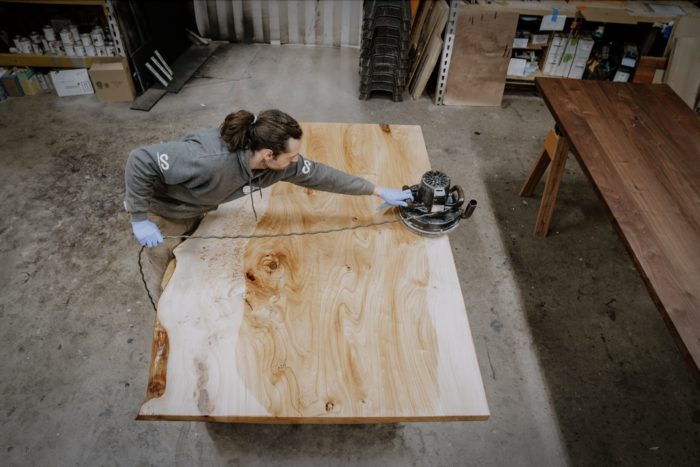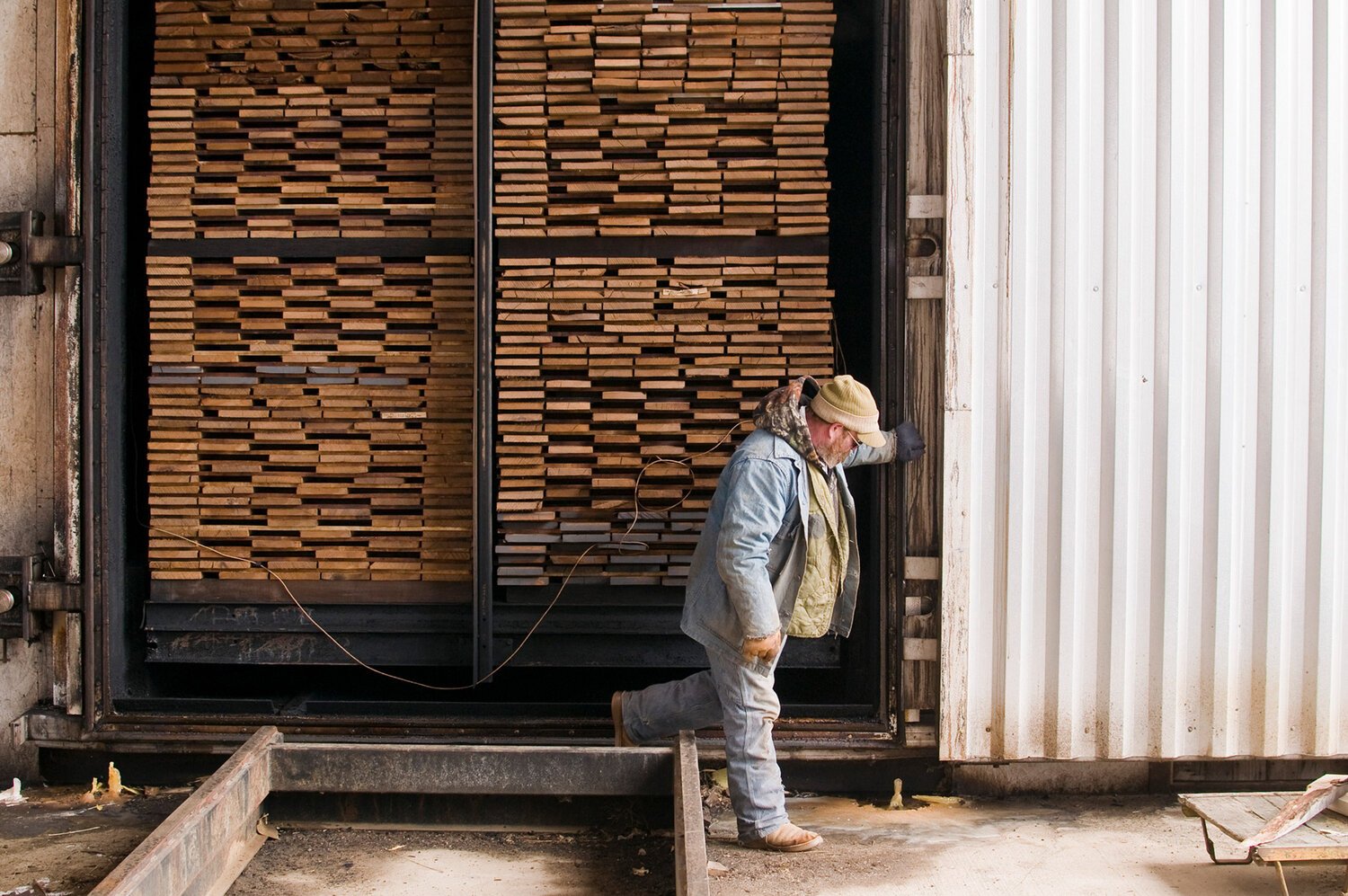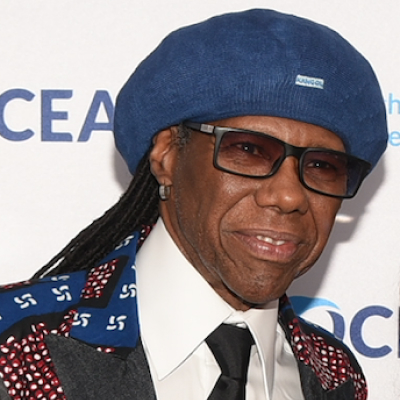More than 36 million trees fall in the United States each year due to rot/disease, disaster or development. Only 10-15% of those trees are recovered while the rest is either burned or tossed into landfills. Cambium was founded by Ben Christensen, Theo Hooker, and Marisa Repka to transform the wood supply chain and the treatment of wood waste. Their vision has come to life with the manufacturing of an upcycled, carbon-negative building material called Carbon Smart Wood™. It’s already being used in a variety of indoor and outdoor applications including a Room & Board collection, Arbor Wood Co. home designs, and the wood flooring of Equinox’s new location at the Domino Sugar Refinery building in Brooklyn. Cambium’s network of more than 235 sawmills are able to easily track inventory through Traece™, an app launched earlier this year for both small and large businesses. The Cambium team is also giving a portion of Carbon Smart Wood™ proceeds to urban reforestation projects around the country.
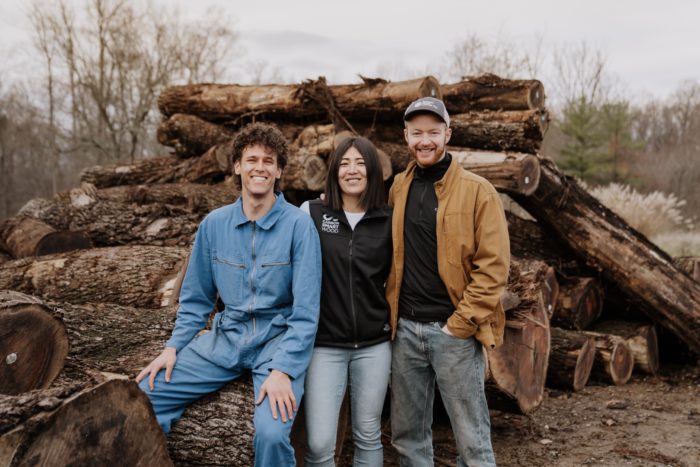
How many trees are sent to landfill each year, and what are the most common reasons?
Every year, over 36 million trees fall [in the U.S.] because of the 4 D’s: decay, disease, disaster and development. Unlike the steel industry, which sees about 95 percent recovery and recycling, only 10 to 15 percent of fallen trees are recovered. The rest is categorized as wood waste, either burned or left in the landfill.
Where are the local arborists and millers located that you currently work with?
We’ve partnered with over 235 sawmills from coast to coast to ensure a localized and sustainable supply chain. We do this through our proprietary supply chain operating system, Traece™.
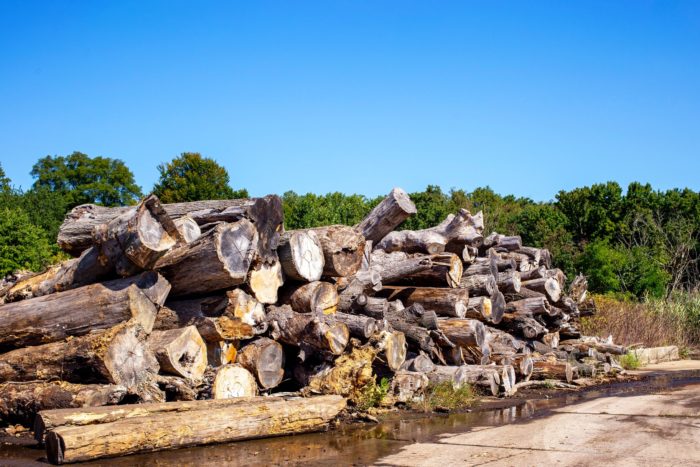
What is Traece™?
Traece™ is the first sustainable supply chain OS. It tracks the entire lumber supply chain from sourcing to delivery, ensuring traceability and transparency about the origin and carbon content of each piece of wood. The app empowers our sawmill partners to manufacture, purchase and sell Carbon Smart Wood™ (as well as their existing materials) and to more efficiently track their inventory.
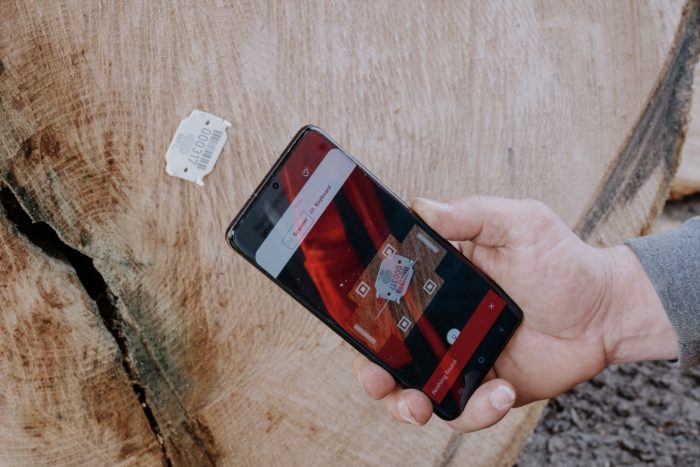
How is your wood carbon-negative?
Carbon Smart Wood™ effectively reduces more carbon emissions than it produces, making it a carbon-negative material. Each board foot stores about 5.23 pounds of carbon dioxide. Since its introduction, we have successfully sequestered 7,700.2 metric tons of CO2e.
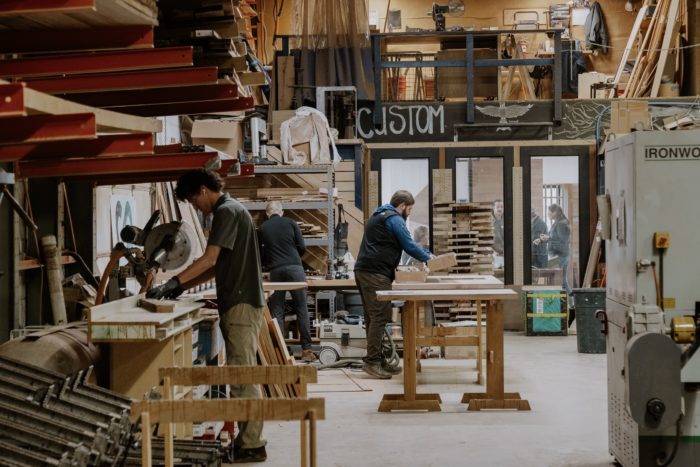
What does the upcycling process at your sawmills entail?
The upcycling process involves transforming “low-value” wood sourced from urban forests, wildland management, and construction and demolition waste, which would otherwise be destined for landfills, into high-value, carbon-negative building materials called Carbon Smart Wood™. The process is centered around meticulous sorting and milling to determine the highest and best use for each piece of wood. By focusing on maximizing the utility of every slab, board, and scrap, Cambium ensures that all wood is utilized to its fullest potential, thereby reducing waste and contributing to a more sustainable and localized economy.
One of the techniques we employ is a thermal modification process. This process includes three phases—a gradual increase in temperature to reduce the wood’s equilibrium moisture content; a rapid temperature spike that alters the wood’s cellular structure in an oxygen-deprived environment to increase decay resistance; and a final steam phase to cool and stabilize the wood. This method transforms even severely compromised wood (ie. those prone to fungal decay or structurally weakened) into durable, lightweight, and water-resistant materials, perfect for outdoor application.
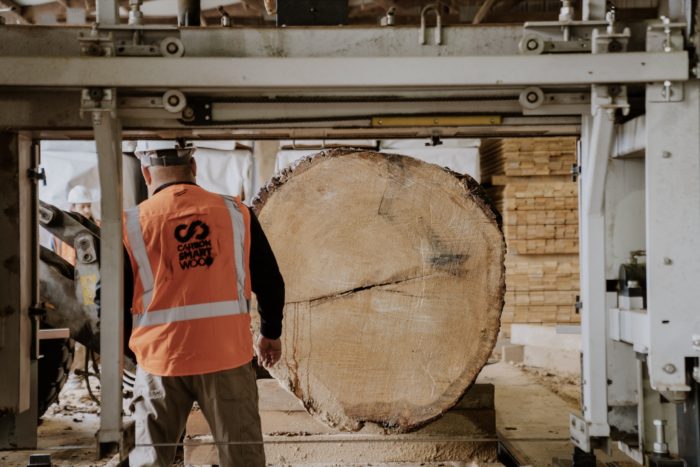
What are some of the brands currently using Carbon Smart Wood™?
- Patagonia – shelving in one of its Baltimore stores
- National Geographic – tables in their office space
- Room & Board uses Carbon Smart Wood™ in its Graft collection as part of its goal to use 100% sustainably sourced wood by 2025.
- We partnered with Steelcase to create the Carbon Smart Wood™ Bassline collection.
- Arbor Wood Co. is an endorsed seller that uses Carbon Smart Wood™ for a variety of outdoor and indoor applications including siding, decking and architectural millwork.
- Equinox plans to install Carbon Smart Wood™ flooring in its 40,000 square-foot gym in the Domino Sugar Refinery building in Brooklyn.
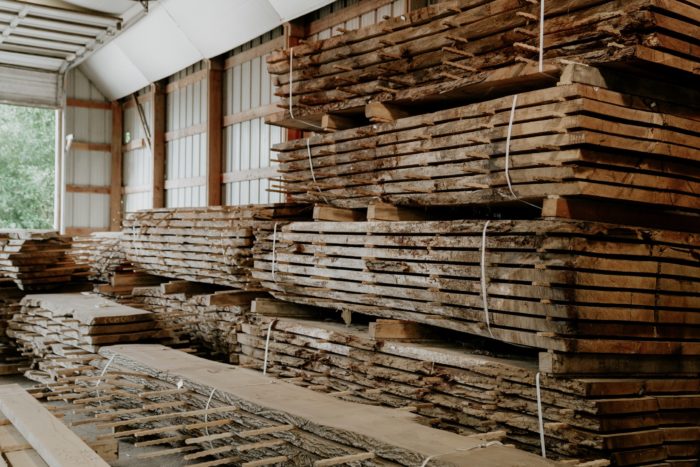
Where can readers purchase Carbon Smart Wood™?
You can purchase finished products from Cambium’s endorsed sellers like Room and Board, while raw materials are sold directly through distributors assigned by our team based on your region.
To become a Carbon Smart Wood™ supplier, your business should be involved in sourcing and processing locally salvaged wood. Cambium collaborates with a network that includes verified salvagers and both primary and secondary processors across the country, maintaining a locally focused but nationally-reaching supply chain. We also build relationships and verify all supply partners through an in-person process.
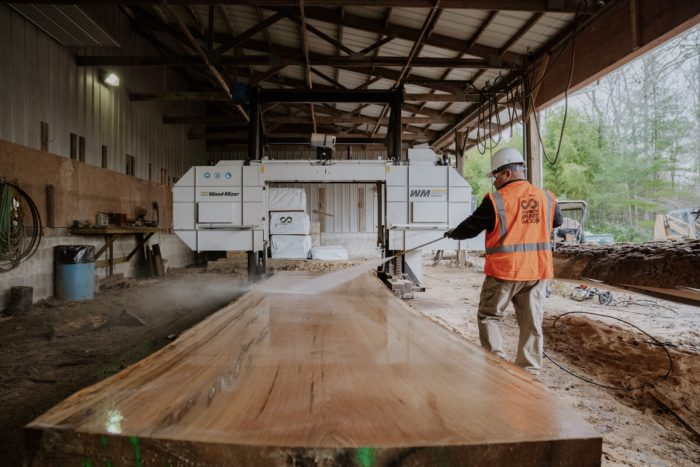
What is the cost comparison to traditional lumber on the market?
We are cost comparative to traditional harvested lumber.
Is Cambium equipped to keep up with demand?
Cambium is designed to scale its operations to meet increasing demand by leveraging its network of local partners across the country. This distributed model of collaboration with local arborists and millers enables the company to source and process material efficiently.
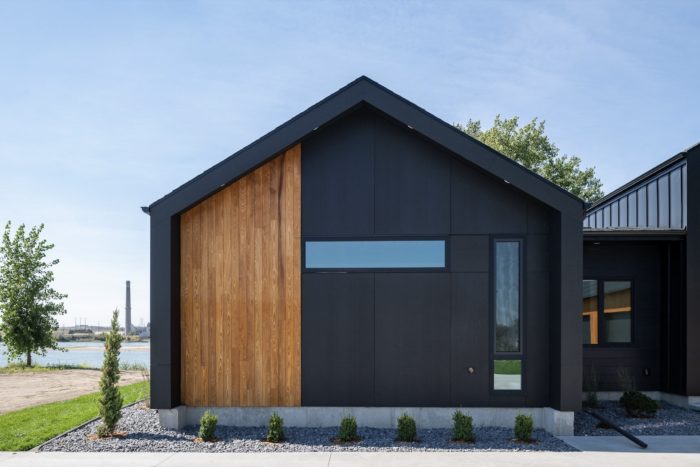
You’re also planting new trees?
Yes, Cambium’s initiative goes beyond just repurposing fallen trees. A portion of the proceeds from Carbon Smart Wood™ goes towards urban reforestation projects with partners across the country. Planting new trees is crucial in combatting climate change as they absorb carbon dioxide from the atmosphere, a natural process of carbon sequestration. It also helps us to effectively implement a circular economy for trees.
Cambium, PowerCorpsPHL and Philadelphia Parks & Recreation have also partnered to launch the Philadelphia Reforestation Hub, a new initiative to reduce the city’s wood waste by upcycling fallen city trees into valuable resources. A percentage of profits from the Hub will be allocated to planting new trees in partnership with TreePhilly, specifically aiming to enhance the urban tree canopy in underserved areas of the city.
